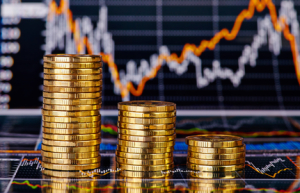
Trading – is defined as exchanging funds (money) for a financial asset, typically stocks, commodities, currencies or indices. When you trade, you go all-in on the deal from the get go. Your objective in trading is to capitalize on an imminent change in market variables. In other words, if you expect interest rates to rise tomorrow, you would buy the USD ahead of the announcement. Or, you would sell gold ahead of the announcement. Trading has a short-term focus. You are not holding the underlying asset for the purposes of adding it to your financial portfolio over the long-term.
Investing – this is the opposite of trading. You’re not looking for short-term gains – you’re looking for long-term appreciation of the underlying financial asset. When you invest in something, you plough resources into it over a prolonged period of time, hoping for that asset’s appreciation. At the end of the investment period, you hope to accumulate gains in the form of profits. The perspective and the motive for investing are worlds apart from that of trading. As the world-famous billionaire investor/entrepreneur Warren Buffett puts it: ‘When we buy a stock we are buying a part of a tangible business and the future earnings it generates’. This is central to the concept of investing.
But at the end of the day – it’s all about money. How much of it you can make from putting your hard-earned resources into an underlying asset and hoping for it to generate returns. Buffet’s rule when it comes to investments is as follows: Acquire the asset at a sensible price, provided the management is able, honest and capable, with excellent economics and then monitor whether these qualities in the business are being preserved. It is quite an undertaking, but one that will pay dividends in the long term.





